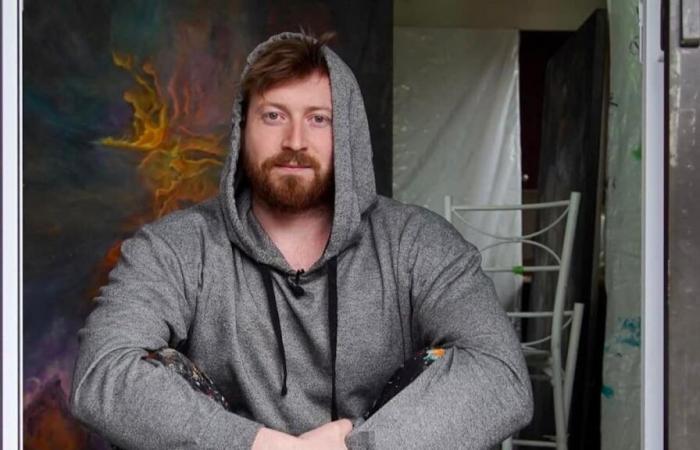A Montreal artist who was defrauded of $14,500 is urging Quebecers to exercise great caution in the face of a new technique where fraudsters manipulate the telephone display to make it appear that the call is coming from their bank.
It all started at the beginning of January, when artist Olivier Corneau received a call that seemed to come from the real number of his bank. The fraudsters kept him online for almost 50 minutes, claiming suspicious activity on his account.
“I had my little voice at the beginning telling me that it was a hacking attempt,” the visual artist told Isabelle Maréchal on Monday in an interview on QUB radio at 99.5 FM Montreal.
The scammers finally managed to divert $7,500 to an international account and $7,000 via Interac transfer, explained Olivier Corneau, who published a video on social networks following his misadventure.
The importance of hanging up
Fraudsters use well-established psychological manipulation techniques to keep their victims online, explains Simon Marchand, independent expert in fraud prevention.
“When we feel that they want to make us nervous, they put pressure. We must not hang up, they will often tell us that,” he emphasizes. His advice is simple: you absolutely have to hang up and call your bank again yourself.
“As long as we do not end the communication, we are not able to call the bank back,” warns the expert. If the bank calls us, they know it’s us. They should know it’s us. They shouldn’t ask us to provide anything.”
Unscrupulous fraudsters
Purchasing stolen identities has become as simple as an ordinary online transaction, the expert maintains. Fraudsters are now showing themselves on popular platforms without any complexes.
“It’s as good as going to Amazon, now, buying an identity. It costs a few dollars, it’s not very expensive. We even have groups now that we see operating on Telegram, on TikTok, on Instagram, who will explain how to commit fraud, who will explain how to obtain credit card numbers, identities,” reveals the expert.
No legal obligation in Canada
The problem, according to the expert, is the lack of legal obligation on banks to reimburse victims in Canada.
“In the United Kingdom, Olivier’s situation would be resolved in five days. They should have refunded it and that’s it. […] The only way not to reimburse him would have been to carry out an exhaustive investigation and prove that Olivier was in collusion with the fraudsters,” explains the fraud expert.
*This text, generated with the help of artificial intelligence, was reviewed and validated by our team based on an interview carried out at QUB.






